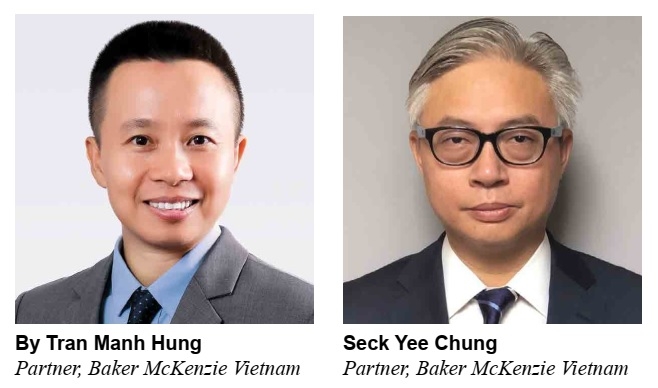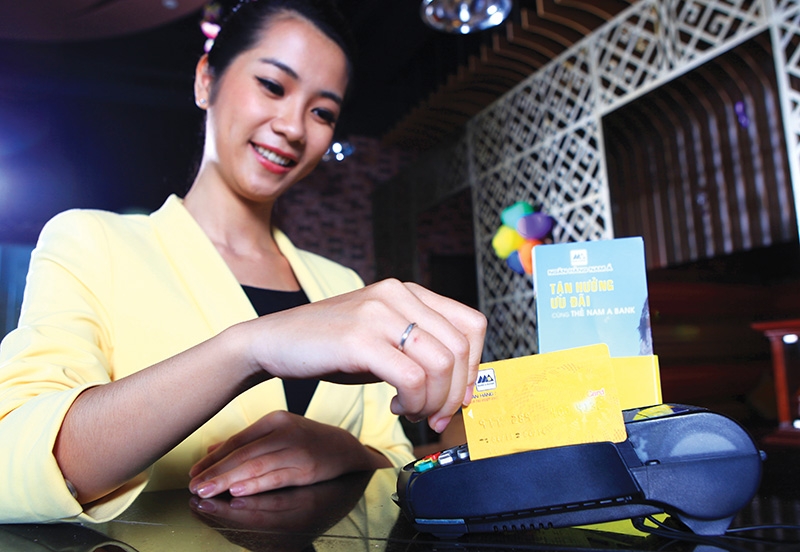Mobile money regulations explained
 |
In May the government approved Resolution No.84/NQ-CP on tasks and solutions for dealing with difficulties in business operations, promoting disbursement of public investment, and ensuring social order and safety during the COVID-19 pandemic mayhem. One of the main tasks set out by this resolution is to approve a pilot scheme for using telecommunication accounts to pay for small-value goods and services (meaning mobile money).
This novel payment service is aimed at small-value and contactless payments, and to help lower the high level of cash circulation in Vietnam.
The State Bank of Vietnam (SBV) has submitted the draft pilot scheme to the prime minister for further review and appraisal. The draft provides insights on the plans for the deployment and operation of mobile money service in Vietnam. With the aim of enhancing financial inclusion for the unbanked or underbanked population, the services will be prioritised in rural and remote areas of Vietnam rather than in major cities.
Under the draft, the pilot scheme will be effective for at least two years and will be mainly deployed by qualified telecommunications enterprises that are required to obtain both a license for wallet intermediary payment services and a license for the establishment of a ground public telecommunication network using radio frequency bands. In order to register to use mobile money services, a user must have their ID or passport number linked to a registered mobile number.
 |
| The draft changes set out rules for depositing cash into, and topping up, mobile money accounts |
The draft requires telecom enterprises to develop detailed processes for the following permitted operations:
Deposit (cash-in)
The draft sets out three methods for depositing money into a mobile money account: deposit cash via the mobile money service agents (affiliates and authorised sale points); transfer money from the user’s bank account to the mobile money accounts; or top up the mobile money account from the user’s e-wallet that are supplied by licensed telecom enterprises who also operate mobile money services.
Cash out a transfer
As provided in the draft, the means of the cash-out operation would be: (i) direct withdrawal from mobile money accounts at the agents’ business locations (sale points); (ii) withdrawing money via the transfer from the mobile money accounts to the users’ payment bank accounts; (iii) transfer money from the mobile money accounts to the users’ e-wallets that are operated by the same mobile money service provider.
Mobile money users, as provided in the draft, can transfer money between their accounts in the same system of mobile money service providers; transfer between the users’ mobile money accounts and their corresponding bank payment accounts; or transfer money between mobile money accounts and e-wallets operated by the same telecom enterprise.
Payment guarantee
Regarding the solvency mechanism, the draft stipulates that telecom enterprises must: (i) open payment guarantee accounts at banks and ensure that the balance on payment guarantee accounts are maintained at not lower than that of the total balance of all mobile money accounts of customers at the same time; and (ii) formulate a mechanism to deal with liquidity risks to ensure customers’ legitimate rights and interests are protected.
The payment guarantee accounts for mobile money services must be separate from other payment accounts of telecom enterprises opened at banks, such as a payment guarantee account for e-wallet services or payroll accounts.
Besides that, telecommunication enterprises must build tools for the SBV, the Ministry of Information and Communications, and the Ministry of Public Security to check and monitor in real time the total balance of mobile money accounts and the amount of money in payment guarantee accounts of telecom enterprises’ mobile money services opened at banks.
Prohibited operations
Given that mobile money is under a pilot scheme, it has to bear several restrictions to comply with the current banking and finance regulatory framework, as well as anti-money laundering (AML) regulations. In particular, the draft proposes to prohibit several activities.
These include using a mobile money account for operations other than deposits, withdrawals, payments and money transfers; providing credit or paying interest for mobile money service users; using the mobile money account to make transactions relating to money laundering, terrorist financing, fraud, or illegal acts provided by laws; and renting, borrowing, lending, exchanging, donating, giving the mobile money accounts or trading off the mobile money account information.
Know your customer (KYC)
With respect to AML and counter-terrorism financing policy, telecom enterprises operating mobile money services are responsible for building tools to manage risk management, developing a KYC process to ensure that the users registering to use the mobile money service provide ID/passport that match the information used to register their mobile phone SIM card, and taking measures to avoid registering users with junk SIM cards.
In addition, the service providers are required to formulate management plans to counter illegal and fraudulent uses of the mobile money service and to restrict and eliminate the use of junk SIM in the market.
Sale points
Under the draft, mobile money services providers are able to set their own criteria and requirements for agents who are authorised agencies to facilitate transactions for users. This includes specific criteria for assessing the agents’ capacities concerning finance, facilities and infrastructure technology, technology and personnel, which serve as a basis for identifying daily and monthly transaction limits for each agent.
Additionally, service providers must develop a mechanism to oversee cash transactions arising at the agents’ business locations to ensure user identification and control of the exact amount of money that the agents receive from users; oversee the user’s mobile money account balance; and ensure that the amount of money that agents receive from users is the amount loaded to the user’s mobile money account, on a 1:1 ratio.
Payment acceptance units
Subject to the draft’s requirements, the service providers must formulate internal policies on several factors.
The first is the process for selecting and engaging (including requirements for the cooperation agreement) business units accepting mobile money (for example, shops, units supplying goods and services accepting users of mobile money service).
Next is the supervision and inspection of the said accepting units as regards their performance of their contractual obligations;
Third is internal regulations on procedures for identifying and verifying the business units accepting mobile money, while lastly is the goods and services payment process between the telecommunication enterprises and units accepting mobile money payments.
Duration and limitation
The duration of the pilot scheme is two years from the date of issuance of approval from the prime minister. The maximum transaction limit is VND10 million ($435) per month per mobile money account for the mandated operations (withdrawals, transfers, and payments). Each user can only open one mobile money account at each mobile money service provider that is licensed for this pilot project.
In addition, under the draft, mobile money services are only available for domestic transactions. Payments and transfers in foreign currencies and cross-border payment and transfers for cross-border services using mobile money service are not allowed in Vietnam.
Although the draft is subject to further amendments following reviews of the draft, some of the main points in the draft will provide opportunities for the mobile money services to advance in Vietnam. In jurisdictions such as Vietnam, it is important to note that the legal system of Vietnam generally only permits acts that are “approved” or “explicitly permitted” or “licensed” and the fact that a law is silent does not necessarily mean that an act is permitted.
This means the proposed policies also include a number of limitations that will need to be addressed to draw clear guidance on the mobile money issues. For example, the provision of mobile money services is restricted to licensed telecom enterprises, which may restrict competition in this industry.
Further, under the current proposal, users of different mobile money services are not able to transact directly with each other or with any e-wallet operated by a third-party service provider, which means that users will still need to rely on banks or cash for these types of transactions. There are also other concerns that will need to be addressed, particularly with respect to data privacy, fraud, and money laundering.
What the stars mean:
★ Poor ★ ★ Promising ★★★ Good ★★★★ Very good ★★★★★ Exceptional
Related Contents
Latest News
More News
- Law on Investment takes effect (March 02, 2026 | 16:21)
- Ho Chi Minh City attracts nearly $980 million in FDI in early 2026 (March 02, 2026 | 10:57)
- Businesses bouncing back after turbulent year (February 27, 2026 | 16:42)
- VinaCapital launches Vietnam's first two strategic-beta ETFs (February 26, 2026 | 09:00)
- PM sets five key tasks to accelerate sci-tech development (February 26, 2026 | 08:00)
- PM outlines new tasks for healthcare sector (February 25, 2026 | 16:00)
- Citi report finds global trade transformed by tariffs and AI (February 25, 2026 | 10:49)
- Vietnam sets ambitious dairy growth targets (February 24, 2026 | 18:00)
- Vietnam, New Zealand seek level-up in ties (February 19, 2026 | 18:06)
- Untapped potential in relations with Indonesia (February 19, 2026 | 17:56)

 Tag:
Tag:



















 Mobile Version
Mobile Version